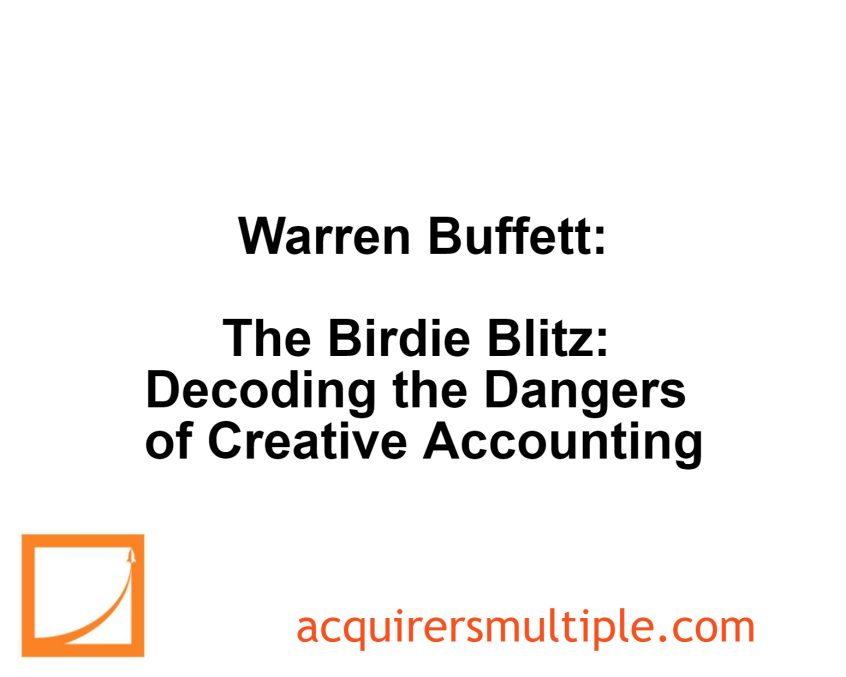In his 1998 Berkshire Hathaway Annual Letter, Warren Buffett explained how businesses can inflate their performance by hiding bad results and only presenting good ones. Using a golf analogy he provided two scenarios:
- Front-loading bad scores: A golfer purposefully scores terribly in the first round, creating a “reserve” of bad shots. This allows them to focus on improvement and consistently score well in later rounds, creating a misleadingly successful record.
- Postponing bad scores: A golfer secretly avoids recording bad holes until after playing several good ones. This gives the impression of consistent excellence, followed by a one-time bad round, easily explained away.
These scenarios provide the following dangers:
- Addiction: Manipulating results becomes easier than actual improvement, leading to a pattern of deceit.
- Loss of accountability: Ignoring failures hinders true progress and harms stakeholders.
Finally, he provides a comparison to Voltaire:
Buffett compares CEOs who engage in such practices to someone who experiments with questionable behavior, becoming increasingly dishonest over time.
Here’s an excerpt from the letter:
This dump-everything-into-one-quarter behavior suggests a corresponding “bold, imaginative” approach to — golf scores. In his first round of the season, a golfer should ignore his actual performance and simply fill his card with atrocious numbers — double, triple, quadruple bogeys — and then turn in a score of, say, 140.
Having established this “reserve,” he should go to the golf shop and tell his pro that he wishes to “restructure” his imperfect swing. Next, as he takes his new swing onto the course, he should count his good holes, but not the bad ones. These remnants from his old swing should be charged instead to the reserve established earlier.
At the end of five rounds, then, his record will be 140, 80, 80, 80, 80 rather than 91, 94, 89, 94, 92. On Wall Street, they will ignore the 140 — which, after all, came from a “discontinued” swing — and will classify our hero as an 80 shooter (and one who never disappoints).
For those who prefer to cheat up front, there would be a variant of this strategy. The golfer, playing alone with a cooperative caddy-auditor, should defer the recording of bad holes, take four 80s, accept the plaudits he gets for such athleticism and consistency, and then turn in a fifth card carrying a 140 score.
After rectifying his earlier scorekeeping sins with this “big bath,” he may mumble a few apologies but will refrain from returning the sums he has previously collected from comparing scorecards in the clubhouse. (The caddy, need we add, will have acquired a loyal patron.)
Unfortunately, CEOs who use variations of these scoring schemes in real life tend to become addicted to the games they’re playing — after all, it’s easier to fiddle with the scorecard than to spend hours on the practice tee — and never muster the will to give them up. Their behavior brings to mind Voltaire’s comment on sexual experimentation: “Once a philosopher, twice a pervert.”
You can read the entire 1998 letter here:
For all the latest news and podcasts, join our free newsletter here.
Don’t forget to check out our FREE Large Cap 1000 – Stock Screener, here at The Acquirer’s Multiple:



